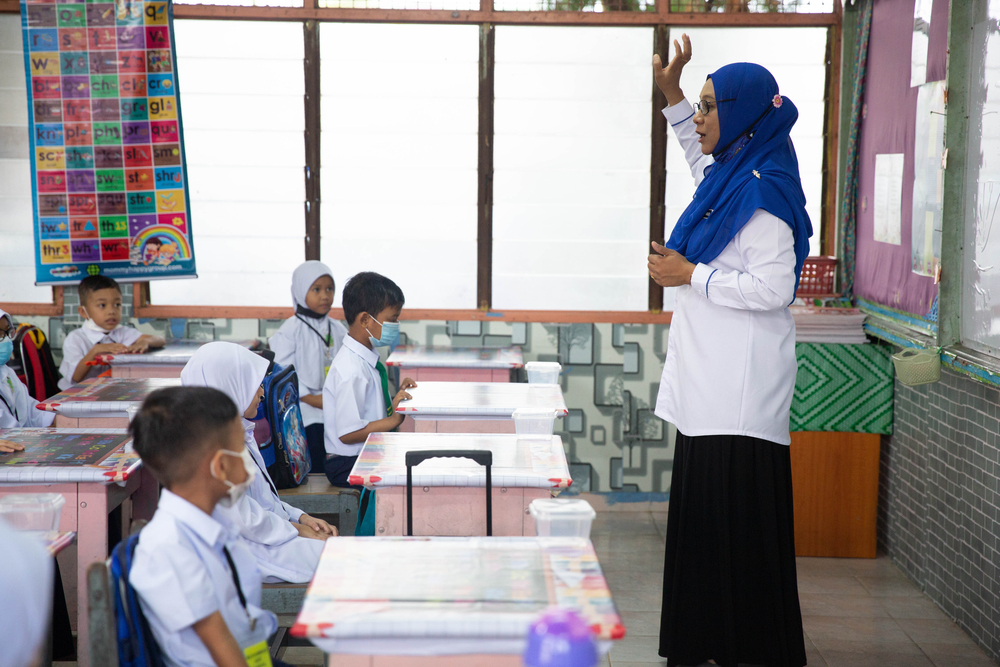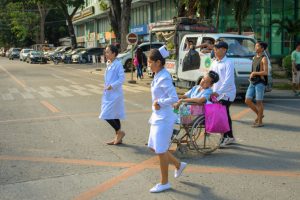Medical Channel Asia presents the weekly Asian medical news bulletin, bringing you essential healthcare news from across the region.
This week, we cover responses to rising COVID-19 cases and more.
Philippines
COVID-19 cases in the Philippines are still on the rise, with a 32% increase in average daily new infections reported last week. Despite this, the Department of Health (DOH) notes that reserved COVID-19 hospital beds’ utilisation remains below the 20% low-risk threshold. A total of 26 provinces are under alert level 2, but these could be downgraded to alert level 1 if they reach 70% vaccination coverage. Currently, these provinces have low-risk classifications for cases and utilisation rates but have vaccination rates below 70% of their target population. According to the DOH, no province or city has escalated from alert level 1 to level 2 since January this year. Health officials are strictly monitoring several areas due to their low vaccination rates, which are attributed to the spread of fake news regarding the supposed ill effects of vaccination.
Singapore
A study by Duke-NUS Medical School and the Institute of Mental Health (IMH) reveals that symptoms of anxiety and depression could be costing Singapore nearly S$16 billion, or 2.9% of its GDP. Published in BMC Psychiatry, the researchers analysed data from 5,725 Singaporean adults. It found that 14% showed signs of depression, while 15% had symptoms of anxiety. Of those identified, only 32% sought health care and 24% consulted a mental health provider. These conditions led to an additional 17.7 days of missed work per year and 40% reduced productivity at work. The Singapore government has formed a multiagency task force to address this growing mental health crisis.
Thailand
The Public Health Ministry in Thailand has launched “The Big Catch-Up” campaign to increase child immunisation rates, following a recent study showing a decline to around 80%. The campaign, involving both public and private sectors, aims to boost vaccination rates of essential vaccines such as polio, measles, DPT, pertussis, tetanus, hepatitis B, and HPV. Dr Nakhon, from the National Vaccine Institute, emphasised the importance of maintaining an immunisation rate above 90% to prevent disease outbreaks. The collaborative efforts of health organisations, professionals, and volunteers are crucial for the campaign’s success. By ensuring vaccines reach every corner of the country, Thailand aims to protect public health and prevent the unnecessary loss of lives. This positive initiative seeks to keep communities safe and healthy for future generations.
Malaysia
Malaysia’s health ministry considers implementing a mask mandate in schools due to a surge in COVID-19 cases, especially with the new Arcturus variant. Health Minister Zaliha Mustafa plans to discuss the matter with Education Minister Fadhlina Sidek this week. The Arcturus variant is a subvariant of Omicron. It spreads more efficiently than other strains and is resistant to antibodies, according to a study by the University of Tokyo. Confirmed cases increased by 30.4% in the 14 days leading up to April 22. Standard operating procedures for mask use in schools will be released before they reopen on May 2. However, the Malaysian Medical Association believes a mask mandate is unnecessary. Instead, they emphasised the importance of hand hygiene and building strong immune systems through healthy lifestyles.
Indonesia
Amidst unusual hot weather in Indonesia, the Indonesian Health Ministry offers tips to maintain health and wellbeing. Mohammad Syahril, the ministry spokesperson, advises drinking ample water before feeling thirsty to prevent dehydration. Avoiding caffeinated, alcoholic, and sweetened drinks is also recommended. People should limit direct sun exposure, use hats or umbrellas, and wear light, loose clothing.
Staying indoors between 11 a.m. and 3 p.m. and avoiding dark clothes are additional precautions. Sunscreen with at least 30 SPF should be applied and a cold water spray bottle kept in vehicles. Syahril urges vigilance for dehydration symptoms such as excessive sweating, cramps, nausea, dizziness, and low output of dark yellow urine. Cooling the body and drinking water may help, but if symptoms persist, seek medical treatment. The Meteorology, Climatology, and Geophysics Agency (BMKG) forecasts continued high UV indices and hazard risks in the region.
Vietnam
A rising number of Vietnamese students are experiencing nicotine poisoning and other health issues due to e-cigarettes and heated tobacco products, the Ministry of Health’s Medical Examination and Treatment Department reports. There has been a significant increase in electronic nicotine delivery products and heated tobacco product usage among students. These products pose health risks, contribute to social evils like drug abuse, and adversely impact adolescent lifestyles.
To combat this issue, the department advises increased communication about the dangers of these products and stricter enforcement of regulations prohibiting their use. Collaboration between health departments, media agencies, and educational institutions is essential for disseminating information on the harmful effects of e-cigarettes and heated tobacco products.
Data from 2022 reveals that tobacco use among students aged 13-15 in Vietnam increased from 0.2% in 2014 to 0.8%. E-cigarette use among those over 15 also rose from 0.2% in 2015 to 3.6% in 2020. The World Health Organization asserts that e-cigarettes are more harmful than traditional cigarettes and can cause severe health effects.













